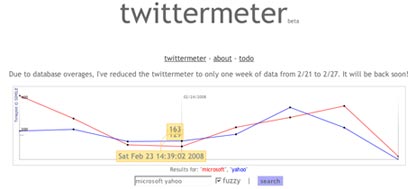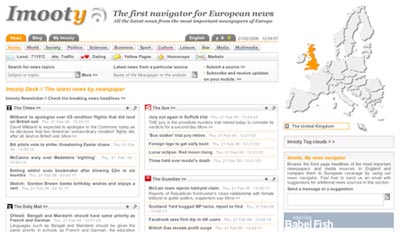Former Lord Chancellor, Lord Falconer, told the BBC yesterday he believed articles relating to high-profile court cases should be removed from online news archives so as to not prejudice the outcome of trials.
In addition to this change to the law he not only suggested that should news publishers refused to comply “it would be very strong evidence they’d committed contempt”, even more bizarrely he told Radio 4’s Law in Action programme that the Attorney General should determine to which few cases this should apply.
With this proclamation Lord Falconer has added a further staggering example of the gulf between what is presumed about the web and how it actually works.
He was talking about The Contempt of Court Act 1981, which prevents the publication of anything that creates a ‘substantial risk of serious prejudice’ to a court case. This comes into action when proceeding become ‘active’, that is to say a person has been arrested and charged for an offence or a warrant has been issued for arrest.
During this time news outlets are only allowed to report certain simple factual elements of the case. If reporting during the trail then what has been said in court, rather than any additional information, can be published.
In the period prior to this and after the conclusion of the trail reporters are at liberty to transgress the rule, in fact, it no longer applies. It’s articles written prior to this ‘active’ period that Lord Falconer wants removed from archives temporarily in the run up and during the trail.
I have to ask whether during the critical thinking that fed his idea it was considered how different it would be for a news aficionado to trawl newspaper web archives for old stories about court cases than to order old editions through the post or hop on the bus to the archive or a library to look the print stories up in person? Has a paper ever been held in contempt for offering an archive service?
A juror wanting to find out more about the case can pretty much do that at the moment if they are keen enough. The problem would seem to be one inside the courtroom rather than outside if a wayward juror actively sought additional information and began casting judgements based on information beyond the facts as they are laid out to them in court.
This active pursuit is the problem. Not the publication. It’s unlikely that someone will incidentally come across extra information. That person would have to engage and search for it. They would have to trawl newspaper achieves or get deep into Google News, as it only throws up results from the previous month in a straightforward search.
It would be impossible to police too. Removing information from news sites would be time consuming enough but what about easily obtainable stories on foreign sites? You’d have to block access to them somehow. Links in email and blogs? What about search engine’s holding mirrored versions of articles? What about précised versions on blogs, on message boards and the wildfire spread of that content once you try to have it removed as the knee-jerk response of the blogosphere to anything that could be misconstrued as censorship kicks in.
Lord Falconer’s assertion that the Attorney General could determine which cases this rule should apply also is baffling. Shouldn’t a suspected stationary thief in Barnstable be afforded the same right to a fair trail as an alleged abductor of children? Shouldn’t it be a law for all, if at all? It seems not.
His idea may be unworkable but it’s something of a moot point anyway, seeing as he’s not the man who makes the decisions anymore on matter like this.
However, he may have inadvertently stumbled on an issue though. What about related news stories thrown up on news sites by some automated process? A link to an older story connected to an online news piece about an ongoing trail? Could these links create a passive access to prejudicial news? Is it that the same process as before: actively seeking out news? Or is an automated link not publishing?
And what about comments? You’d hope that comments on stories like these would be pre-moderated or turned off.


